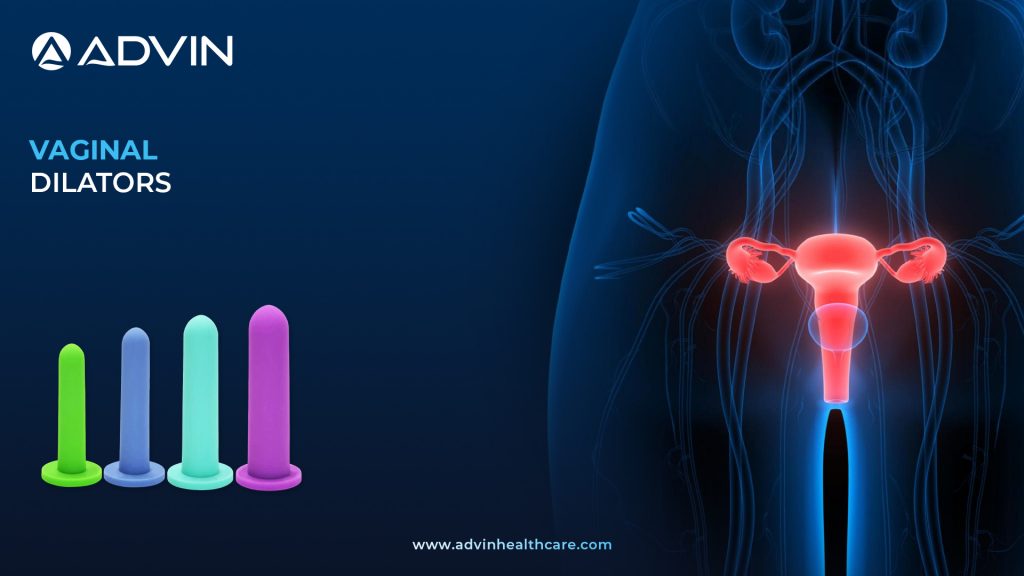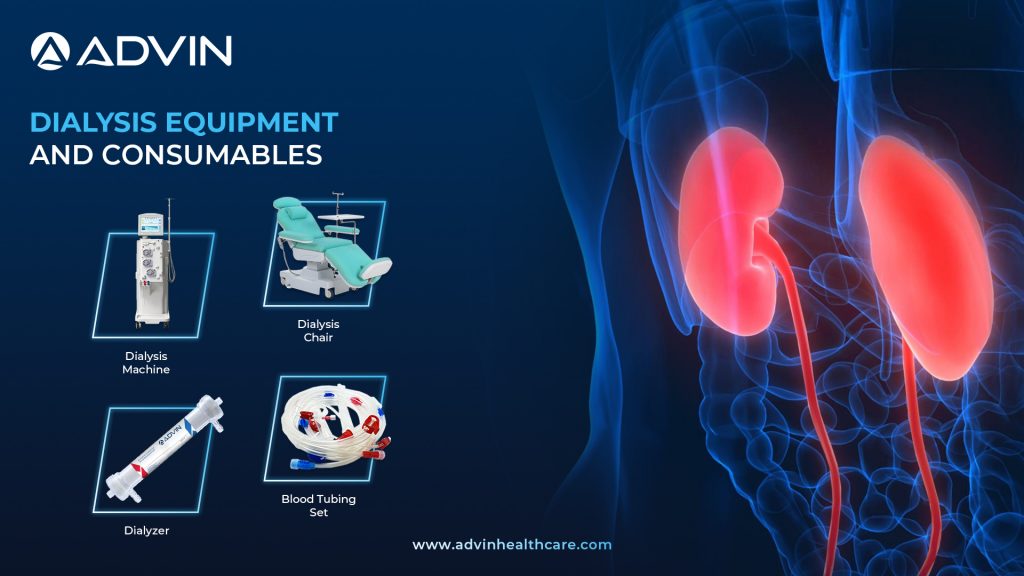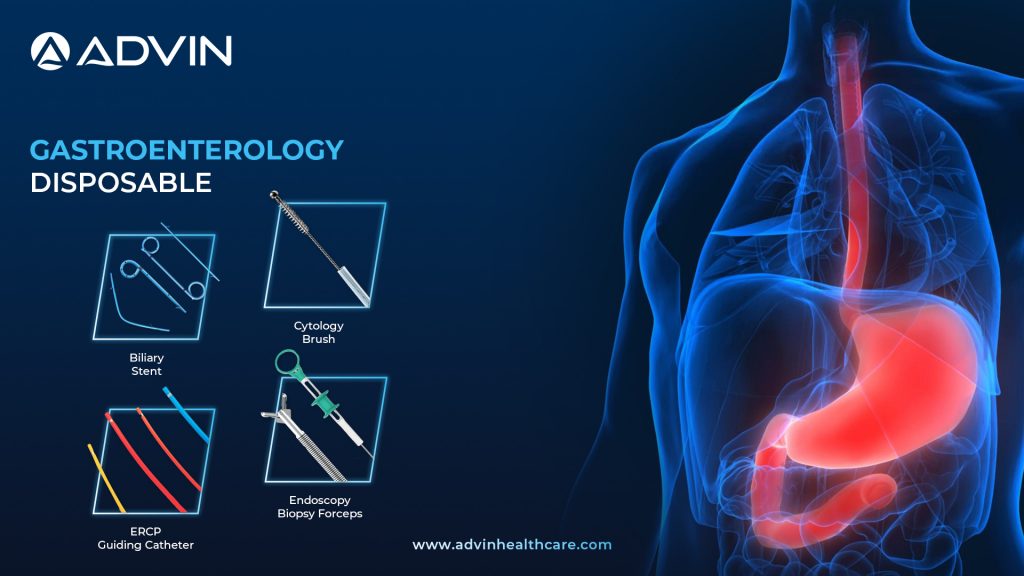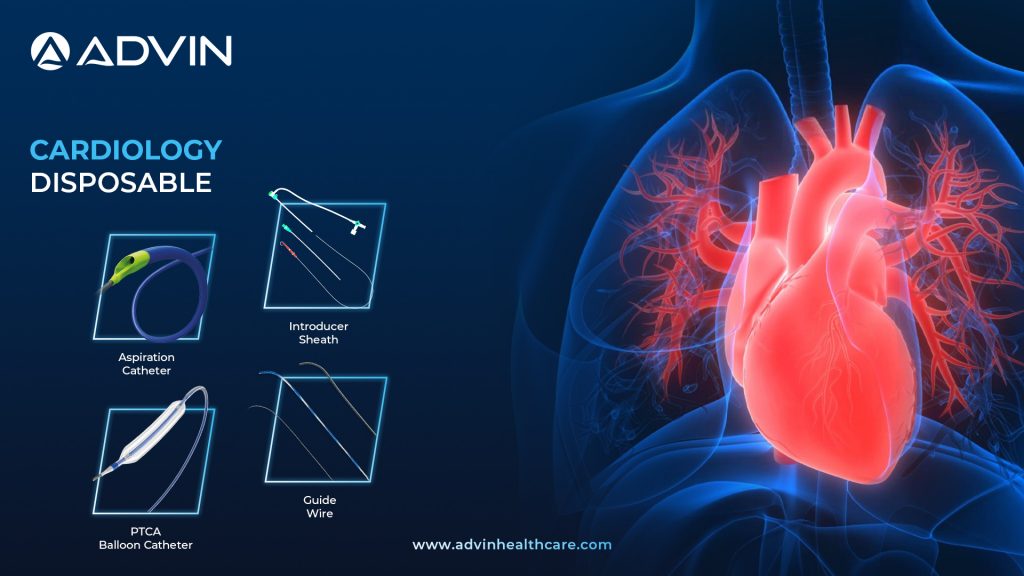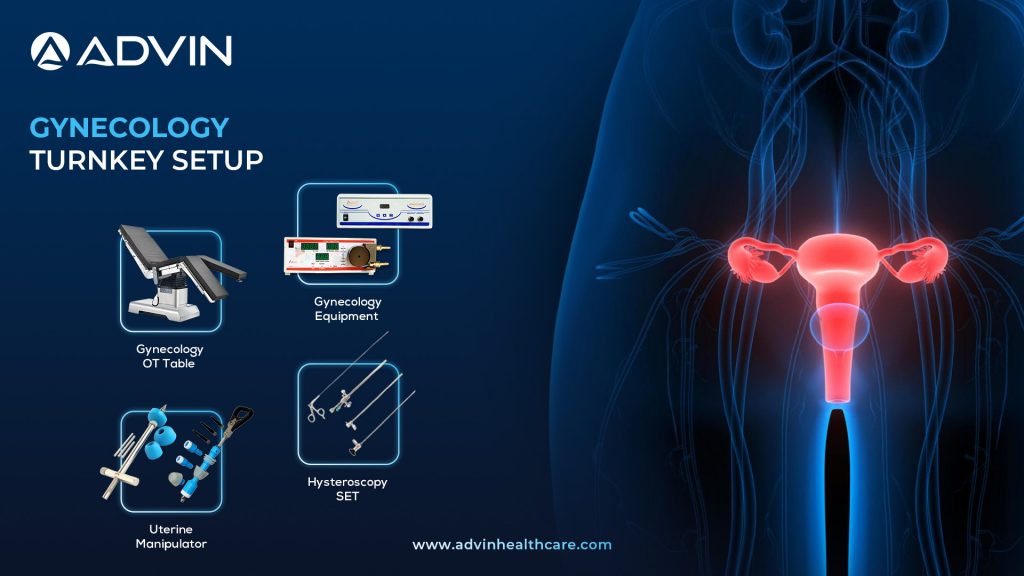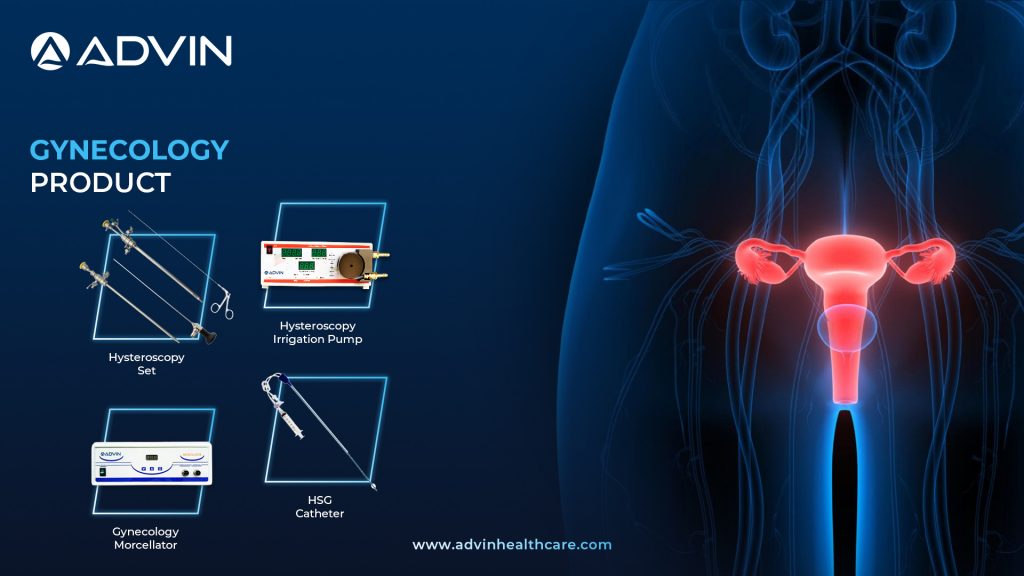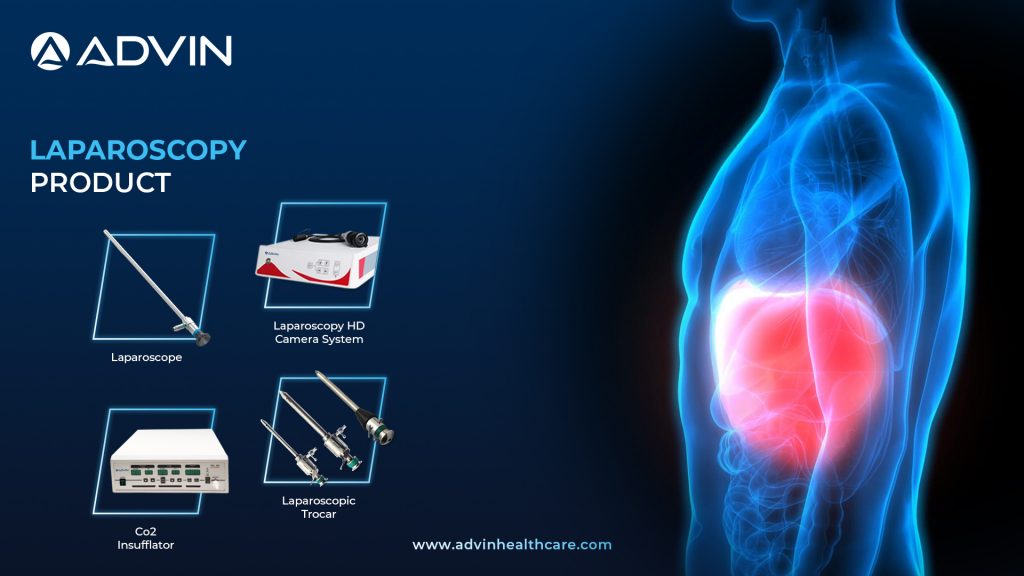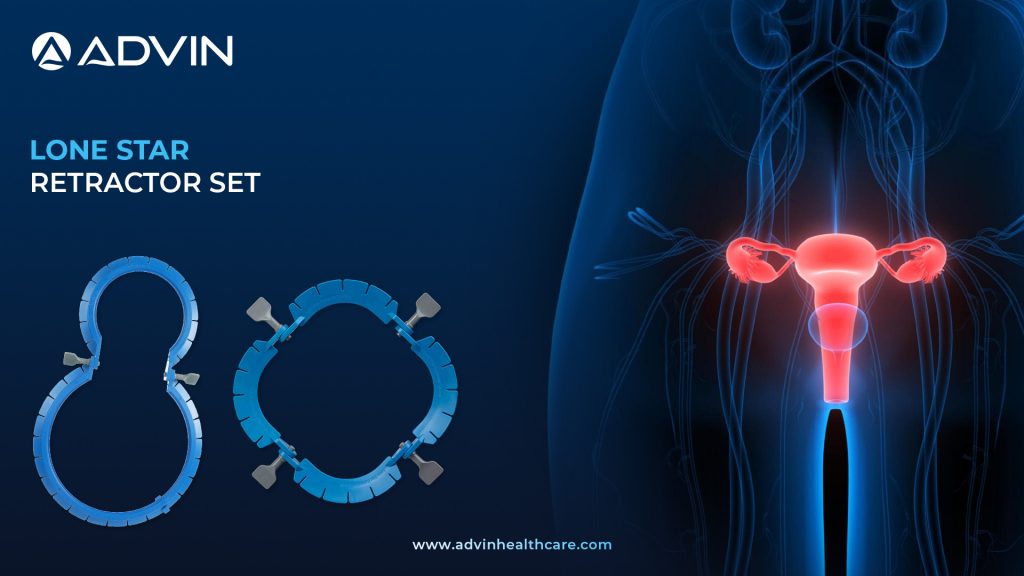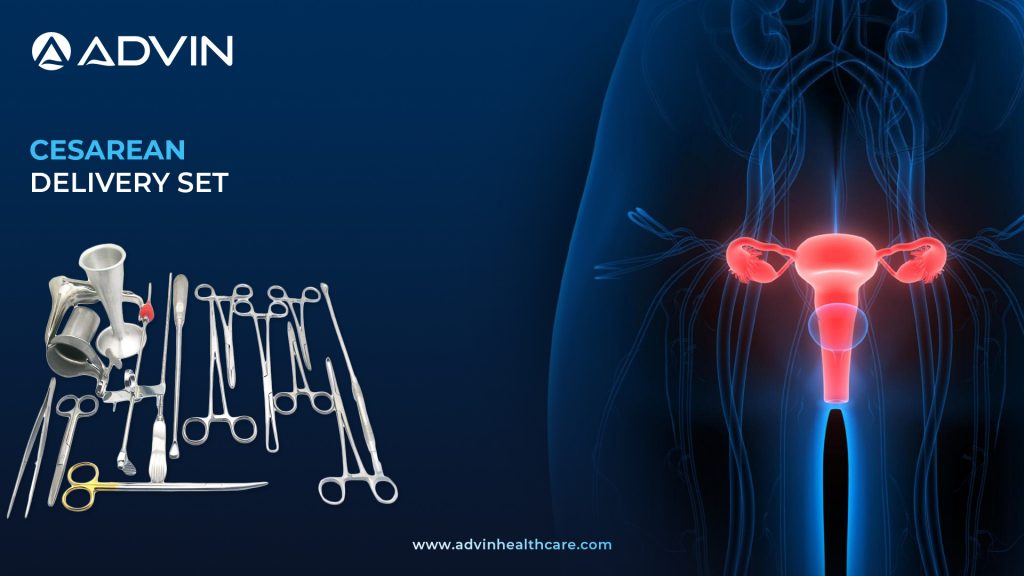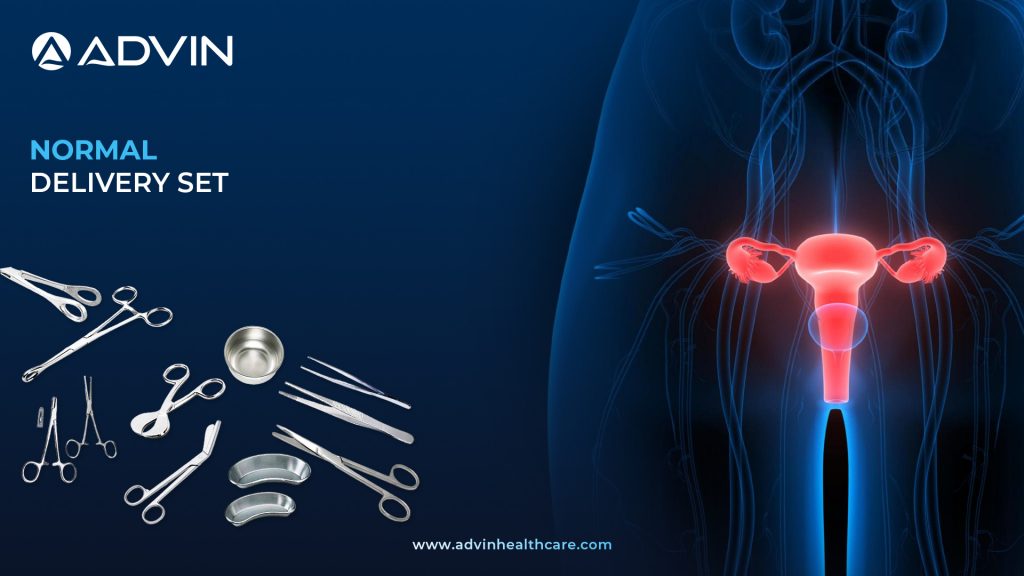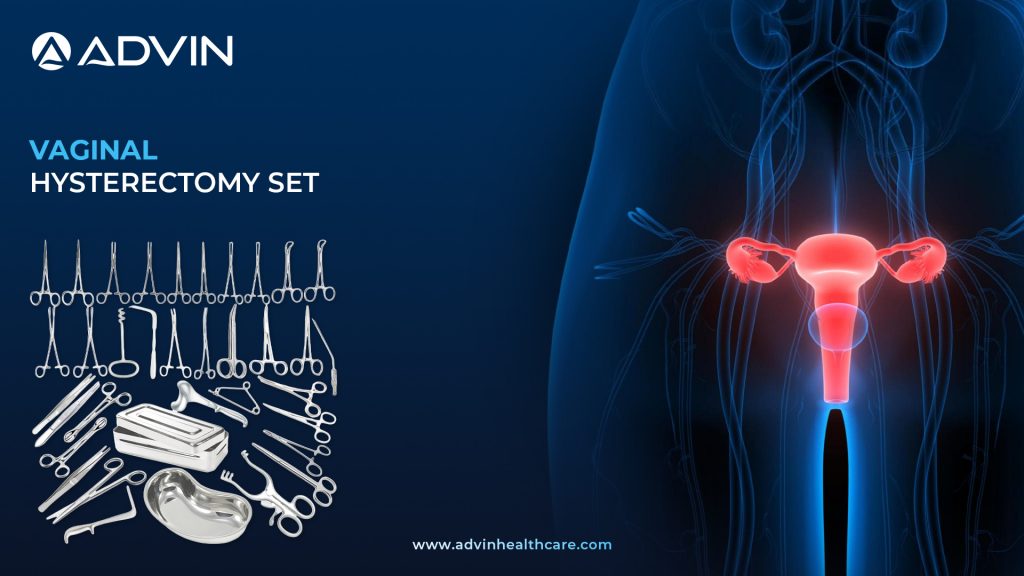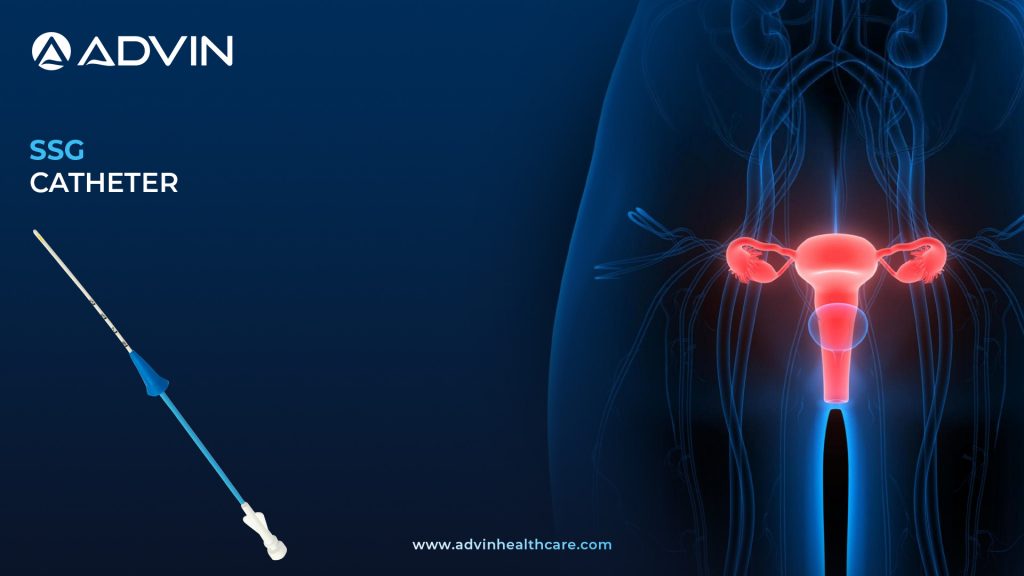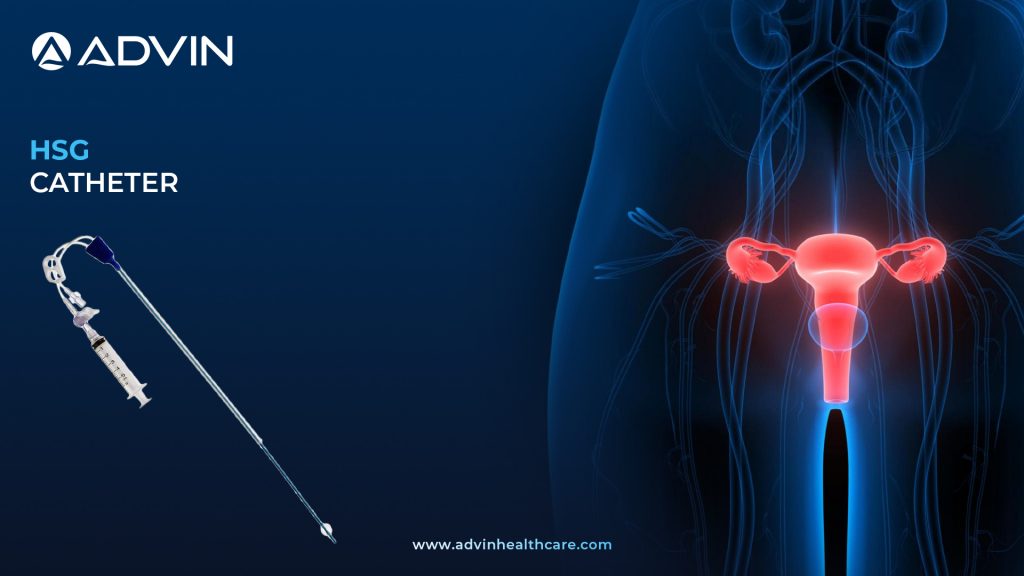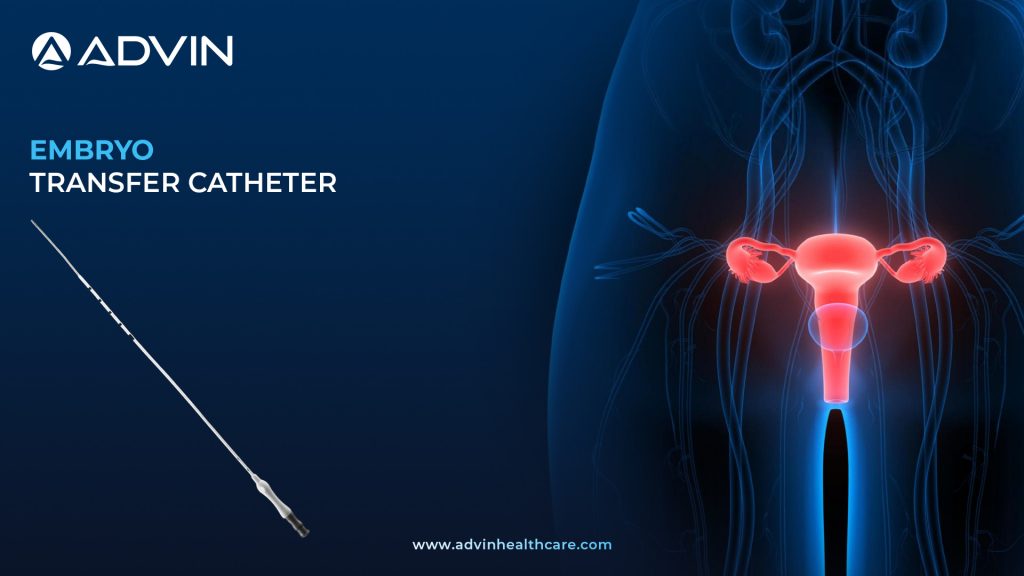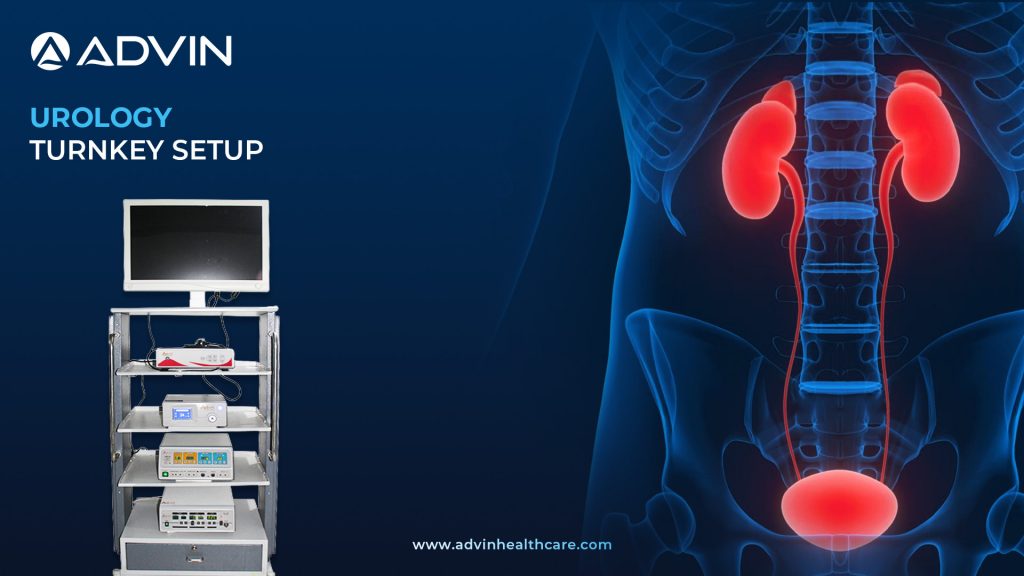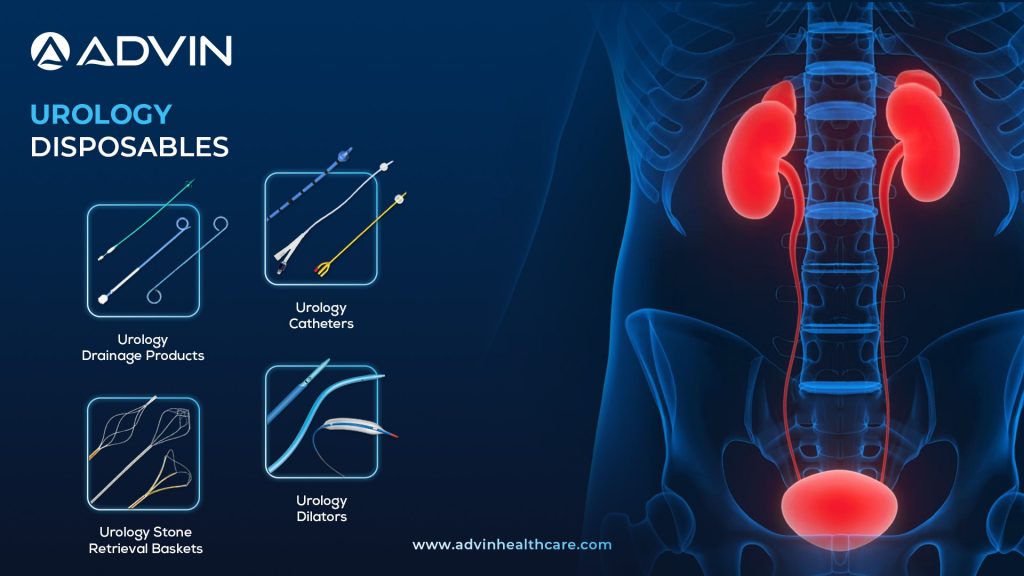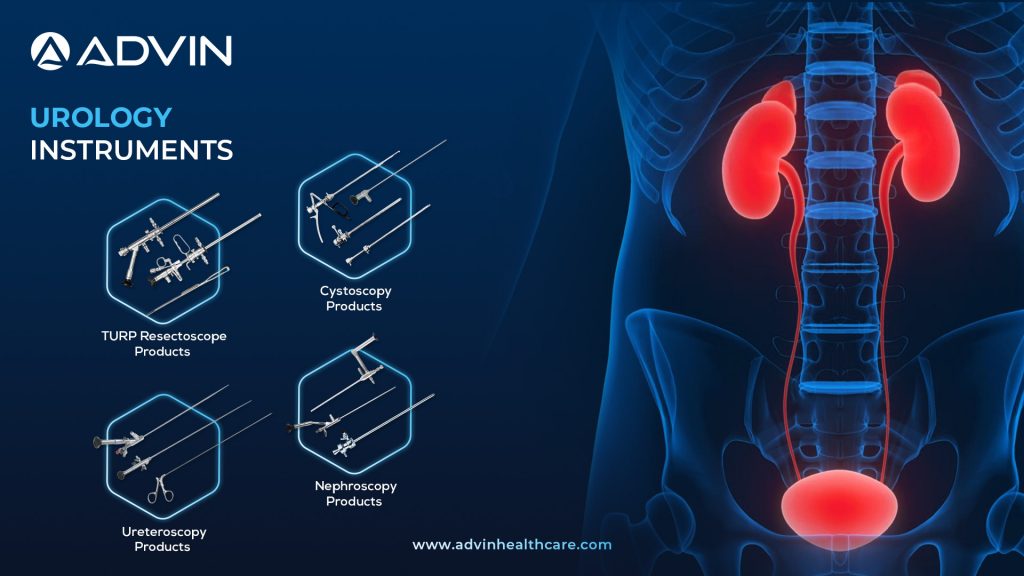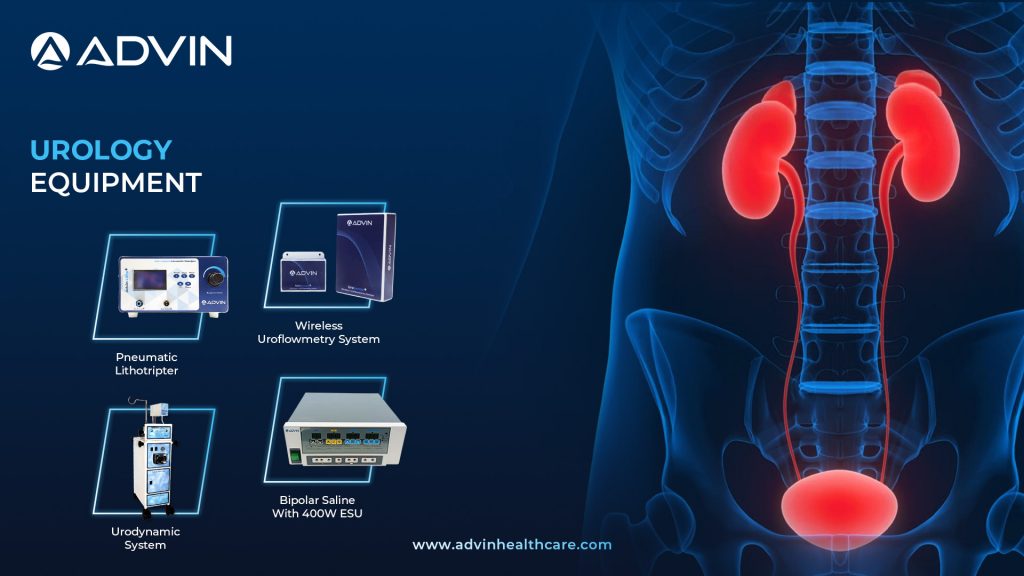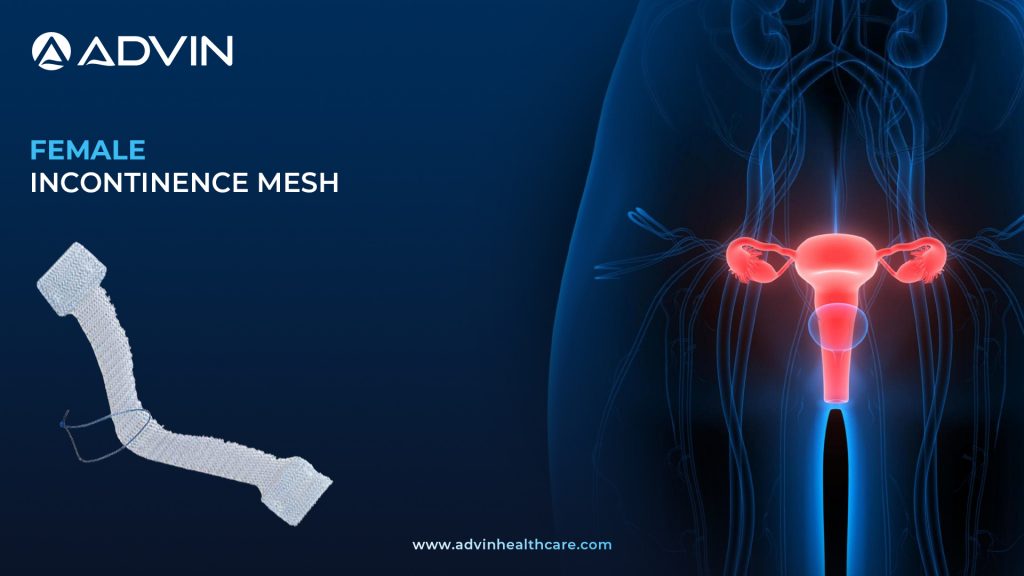Vaginal Dilator – Medical-Grade Dilator Ensuring Safety, Comfort, and Treatment Accuracy.
 Advin Health Care
Advin Health Care
 December 17, 2025
December 17, 2025
Vaginal Dilators for Gynecological Therapy and Post-Surgical Care Vaginal Dilators are medical devices used to gently stretch the vaginal canal. They help in treating vaginal stenosis, post-surgical narrowing, or pelvic floor dysfunction. The dilators are made from soft, biocompatible materials for safe and comfortable use. Evolution of Vaginal Dilators in...
Read More
Advin Dialysis Equipment and Consumables: Supporting Renal Care with Precision and Reliability
 Advin Health Care
Advin Health Care
 December 17, 2025
December 17, 2025
Advin Health Care is dedicated to strengthening renal care by offering a comprehensive range of dialysis equipment and consumables designed to meet the demanding needs of modern dialysis centers. With a strong foundation in medical manufacturing and innovation, Advin focuses on delivering solutions that ensure patient safety, treatment efficiency, and...
Read More
Advin Gastroenterology Disposables: Enhancing Safety and Efficiency in GI Procedures
 Advin Health Care
Advin Health Care
 December 17, 2025
December 17, 2025
Advin Health Care, a leading manufacturing company, has become a trusted name in the field of gastroenterology by providing high-quality disposable products designed to improve procedural safety, reduce infection risk, and enhance clinical efficiency. With a focus on innovation, precision, and reliability, Advin’s gastroenterology disposable portfolio caters to hospitals, endoscopy...
Read More
Advin Cardiology Disposables: Precision, Safety, and Reliability in Cardiac Care
 Advin Health Care
Advin Health Care
 December 17, 2025
December 17, 2025
Advin Health Care, a leading manufacturing company, is at the forefront of providing high-quality cardiology disposables designed to enhance patient care, ensure procedural safety, and support healthcare professionals in delivering efficient cardiovascular interventions. With a strong commitment to innovation, quality, and reliability, Advin equips hospitals and cardiac centers worldwide with...
Read More
Advin Gynecology Turnkey Setup: Comprehensive Solutions for Modern Women’s Healthcare Centers
 Advin Health Care
Advin Health Care
 December 16, 2025
December 16, 2025
Advin Health Care, a leading manufacturing company, has established itself as a pioneer in providing complete turnkey solutions for gynecology centers. By combining state-of-the-art equipment, advanced instruments, and a world-class R&D facility, Advin offers fully integrated setups that enable hospitals and women’s healthcare centers to perform a wide range of...
Read More
Advin Gynecology: Excellence in Women’s Health with Advanced Surgical Solutions
 Advin Health Care
Advin Health Care
 December 16, 2025
December 16, 2025
Advin Health Care, a leading manufacturing company, has established itself as a trusted provider of innovative gynecological instruments and solutions. With a focus on precision, reliability, and patient safety, Advin equips hospitals and surgical centers with comprehensive gynecology equipment that supports diagnostic, therapeutic, and minimally invasive procedures. By combining advanced...
Read More
Advin Laparoscopy: Advancing Minimally Invasive Surgery with Precision and Innovation
 Advin Health Care
Advin Health Care
 December 16, 2025
December 16, 2025
Advin Health Care, a leading manufacturing company, has established itself as a pioneer in the field of laparoscopy, providing high-quality instruments and advanced solutions for minimally invasive surgery. With a commitment to precision, reliability, and innovation, Advin equips hospitals and surgical centers with comprehensive laparoscopic systems that enhance surgical outcomes,...
Read More
Lonestar Retractor Set – Hands-Free Soft Tissue Retraction for Clear Surgical Visibility.
 Advin Health Care
Advin Health Care
 December 16, 2025
December 16, 2025
Lonestar Retractor Set Square for Optimal Surgical Exposure A Lonestar Retractor Set is a surgical instrument set used to hold tissues and organs away from the surgical site during procedures. It provides adjustable tension and stable exposure for the surgeon. The set is made from high-quality stainless steel for durability...
Read More
Cesarean Delivery Set – Complete Sterile Instrument Solution for Safe and Controlled C-Section Surgery.
 Advin Health Care
Advin Health Care
 December 16, 2025
December 16, 2025
Cesarean Delivery Set for Safe & Efficient Childbirth Procedures A Cesarean Delivery Set is a group of surgical instruments used to perform a safe and controlled cesarean section. It contains tools for incision, tissue handling, clamping, and suturing. This set supports the delivery of the baby when vaginal birth is...
Read More
Normal Delivery Set – Essential Obstetric Instruments for Controlled and Comfortable Delivery
 Advin Health Care
Advin Health Care
 December 15, 2025
December 15, 2025
Normal Delivery Instruments Set for Safe & Efficient Childbirth Procedures A Normal Delivery Instruments Set contains essential tools used during vaginal childbirth. It helps healthcare professionals manage delivery safely and efficiently. The set includes instruments for examination, assistance, clamping, and cutting during the birthing process. Evolution of Normal Delivery Instrument...
Read More
Vaginal Hysterectomy Set – Precision Surgical Instruments for Safe and Efficient Vaginal Procedures
 Advin Health Care
Advin Health Care
 December 15, 2025
December 15, 2025
Vaginal Hysterectomy Set for Safe and Efficient Gynecological Surgery A Vaginal Hysterectomy Set is a specialized surgical instrument kit used for performing vaginal hysterectomy procedures. It includes all necessary tools for safe and efficient removal of the uterus through the vaginal canal. The set is made from high-quality stainless steel...
Read More
SSG Catheter – Advanced Catheter Solution for Accurate and Efficient Fertility Evaluation.
 Advin Health Care
Advin Health Care
 December 13, 2025
December 13, 2025
SSG Catheter for Saline Sonography & Uterine Cavity Evaluation An SSG Catheter is used for Sonosalpingography, a procedure that checks the patency of the fallopian tubes using ultrasound. It allows the introduction of saline or contrast medium into the uterine cavity for clear imaging. The catheter is soft and flexible,...
Read More
HSG Catheter – Smooth, Controlled Contrast Delivery for Effective HSG Procedures.
 Advin Health Care
Advin Health Care
 December 12, 2025
December 12, 2025
HSG Catheter for Diagnostic Evaluation of Uterine & Tubal Patency An HSG Catheter is a medical device used during hysterosalpingography to evaluate the condition of the uterus and fallopian tubes. It allows controlled injection of contrast media to visualize tubal patency. The catheter is soft, flexible, and designed to minimize...
Read More
Embryo Transfer Catheter – Precision Tool for Successful IVF Procedures
 Advin Health Care
Advin Health Care
 December 12, 2025
December 12, 2025
Embryo Transfer Catheter for Precise Embryo Placement An Embryo Transfer Catheter is a specialized medical device used to transfer embryos into the uterus during assisted reproductive procedures. It ensures precise and gentle placement of embryos to optimize implantation success. The catheter is made from soft, biocompatible materials to minimize trauma...
Read More
Advin Urology Turnkey Setup: Comprehensive Solutions for Modern Urology Centers
 Advin Health Care
Advin Health Care
 December 11, 2025
December 11, 2025
Advin, a leading manufacturing company, is at the forefront of providing complete turnkey solutions for urology centers worldwide. By combining state-of-the-art equipment, advanced instruments, and a world-class R&D facility, Advin offers fully integrated setups that enable hospitals and surgical centers to perform a full spectrum of urology procedures efficiently and...
Read More
Advin Urology Disposables: Elevating Standards in Modern Urologic Care
 Advin Health Care
Advin Health Care
 December 11, 2025
December 11, 2025
Advin, a globally recognized manufacturing company, has built a reputation for delivering high-quality urology disposables designed to enhance surgical efficiency, maintain sterility, and improve patient outcomes. In modern urology, disposables play a critical role in minimizing infection risk, ensuring reliability, and supporting minimally invasive procedures. Advin’s Urology Division offers an...
Read More
Advin Urology Instruments: Engineering Excellence for Modern Urologic Surgery
 Advin Health Care
Advin Health Care
 December 11, 2025
December 11, 2025
Advin, a leading manufacturing company, has earned global recognition for delivering high-quality urology instruments designed to enhance surgical precision, efficiency, and patient safety. With decades of experience in medical technology, Advin’s Urology Division offers a comprehensive portfolio of instruments that meet the rigorous demands of modern urology procedures. By combining...
Read More
Advin Urology Equipment: Redefining Accuracy, Safety & Efficiency in Urology
 Advin Health Care
Advin Health Care
 December 11, 2025
December 11, 2025
Advin, a globally recognized manufacturing company, has established itself as a leader in developing advanced urology equipment designed to enhance surgical precision, safety, and patient outcomes. With decades of experience in medical technology and a commitment to innovation, Advin’s Urology Division provides healthcare professionals with instruments that meet the highest...
Read More
Advin Urology: 15 Years of Pioneering Excellence in Global Urology Solutions
 Advin Health Care
Advin Health Care
 December 11, 2025
December 11, 2025
For 15 years, Advin, a leading manufacturing company, has been transforming the field of urology by delivering innovative, precise, and high-quality medical devices. As a 15-year-old company, Advin has steadily grown from a visionary startup into a global leader in urology technology. Today, the company proudly holds the position of...
Read More
Female Incontinence Mesh – Advanced Stabilization Solution for Long-Lasting Incontinence Management.
 Advin Health Care
Advin Health Care
 December 11, 2025
December 11, 2025
Female Incontinence Mesh for Pelvic Floor Support A Female Incontinence Mesh is a surgical implant used to support the urethra and treat stress urinary incontinence in women. It provides additional reinforcement to prevent urine leakage during activities like coughing or exercising. The mesh is made from biocompatible material to ensure...
Read More

